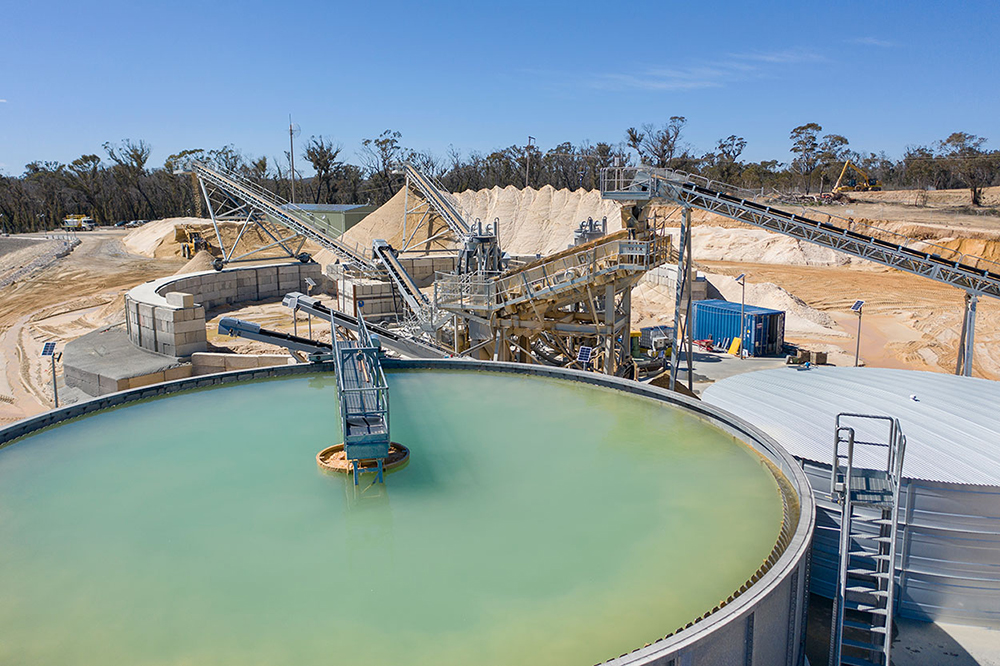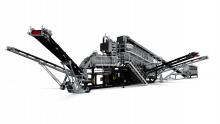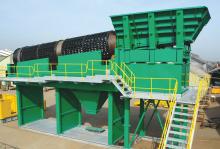
The sandstone deposit is located in the Blue Mountains and produces premium quality construction sand that is washed and classified using the new Terex Washing Systems wash plant. The bespoke design of the plant can produce up to 300tonnes/hour of quality sand and recycles roughly 90% of the water used during the washing process.
The wash plant features a H30 Feeder that receives the raw sandstone feed material and distributes it evenly on the main conveyor. At this point any stones or rock that are larger than 100mm are removed from the feed material due to the grid covering the feeder.
With the sand distributed evenly on the main conveyor it makes its way up to the modular 20x8 2-deck Rinser Screen. This screen has been designed specifically to handle the tonnage needed for this operation. Spray bars give the material an initial rinse as the vibrating screener shakes the sand and stone down through the polyurethane decks as it is classified by size. Larger aggregates can pass through the screen onto aggregate and oversize conveyors where they are stockpiled as products for sale.
Sand, silt, clay or other fine impurities present within the feed material is washed to the split catchbox of the screener. Terex Washing System catchboxes have adjustable blending paddles which assist in blending the correct amount of fines into the coarse fraction. The material is gravity fed into one of two FM 200C Sand Plants. Separators use centrifugal force to remove the sand from the silt and clay so that it can be transferred onto the high-frequency dewatering screens. The sand is then transferred onto a 26m radial stacking conveyor that offers a large stockpile capacity.
The water that has been used is pumped into the 17m rake thickener tank. The integral scrapers aid transportation of material from the outskirts of the tank to the outlet, thus accelerating the removal of sludge from the thickener.






